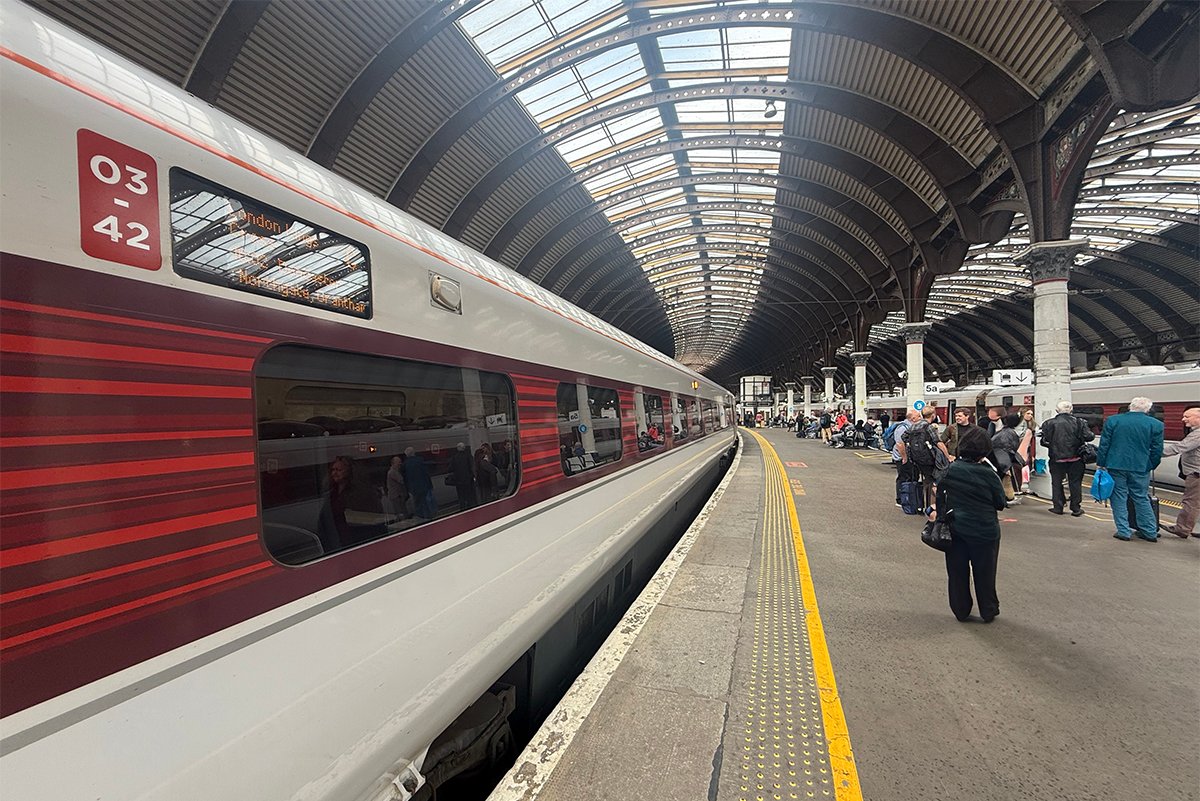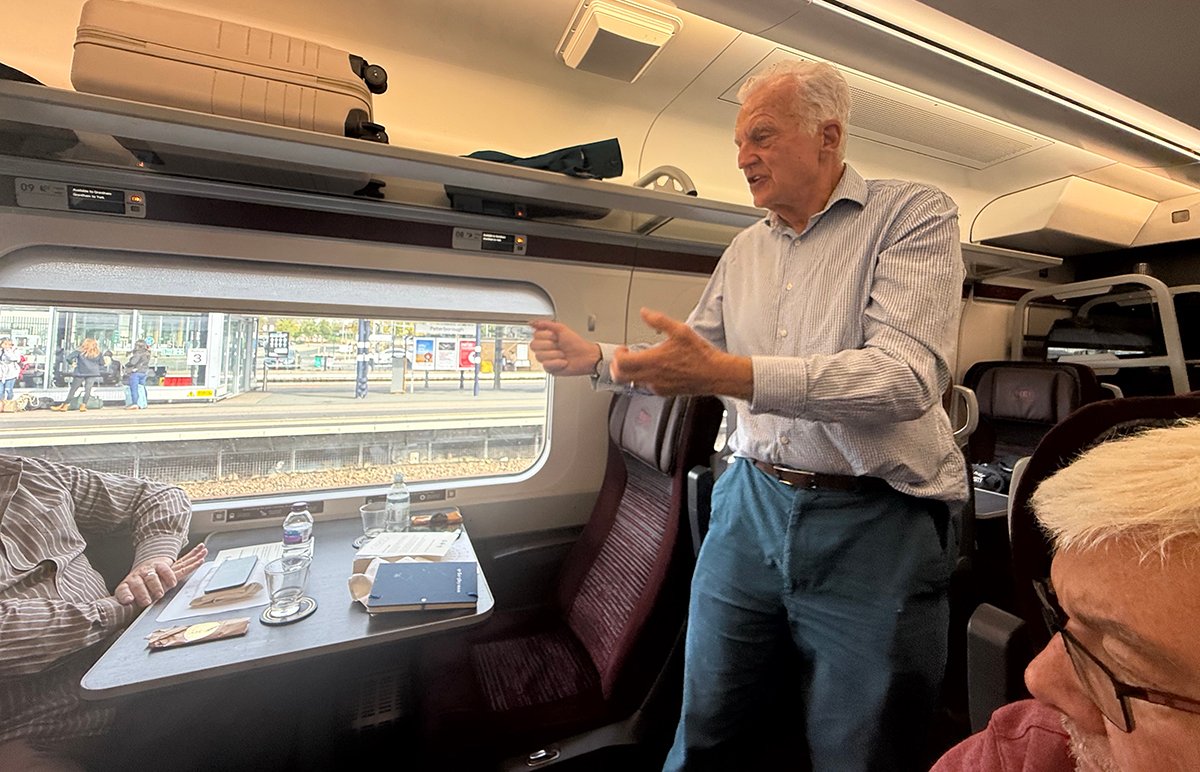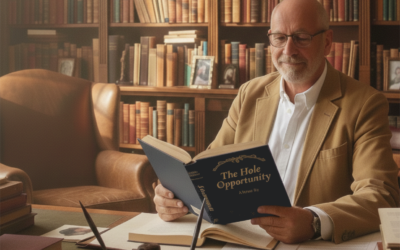Journey from London to York in Celebration of the 200th Anniversary of the Modern British Railway

Photo:A bustling platform at York station, showcasing its iconic arched roof and historic charm as passengers prepare to board a sleek modern LNER train bound for northern destinations. Photos by Ben F. Oncu
Railways Were The Genesis of Capitalism…Spreading Across The World.
The journey from London to York celebrated 200 years of railways, highlighting their transformative impact on British society, including transport, food, leisure, warfare, and their continued influence on modern innovation.
Last week, we embarked on an unforgettable trip from London to York in celebration of Railway 200, commemorating the bicentenary of the Stockton and Darlington Railway, widely regarded as the birthplace of the modern railway on 27 September 1825. With over 2,000 diverse events taking place across the country this anniversary year, the journey from London to York promised to be a unique and immersive experience.
The Start of the Journey
Our group of journalists and influencers gathered at London King’s Cross Station, boarding an LNER First Class carriage that would guide us towards York. The journey began with a warm welcome by the Legacy team, including culinary touches thoughtfully designed to celebrate the northern flavours of Yorkshire.
Christian Wolmar, an award-winning writer and broadcaster renowned for his expertise on transport and railway history, joined us on the train to share his insights on the extraordinary impact of railways throughout history. His lively speech at Peterborough highlighted key milestones in British railway development and its profound influence on society, technology, and culture.

Christian Wolmar’s Reflections on the Modern Railway
As we travelled north, Mr Wolmar detailed the astonishing feat of constructing 6,000 miles of railway within just two decades during the 19th century. This monumental achievement not only revolutionised transport but also laid the foundation for global capitalism, forging management systems, organisational practices, and technological advances that shaped the modern world.
Wolmar illustrated the contrast between pre-railway days—when travelling between cities like London and York could take three to four days on difficult stagecoach routes—and the advent of railways, which shortened these journeys to mere hours. Railways dramatically transformed life in Britain, enabling commuting, boosting urban infrastructure, and revolutionising agriculture and food supply chains. An example he shared captured this transformation well: before railways, fresh milk was delivered to Londoners using cows kept in city basements, but with the advent of railways, fresh goods like milk and even fish rapidly reached urban centres, forever changing British diets and introducing staples such as fish and chips.
Wolmar also noted railways’ influence on leisure, popularising seaside holidays, facilitating professional football matches, and reshaping warfare. For instance, he explained how railways enabled long-lasting battles during World War I by efficiently transporting supplies and troops—an innovation that profoundly altered military strategy.
Arrival in York and Culinary Highlights at The Grand
Upon arrival at York, we disembarked to continue our celebration at The Grand York—a historical landmark originally built in 1906 as the headquarters of the North Eastern Railway. This exquisite venue hosted an exclusive culinary journey provided by Legacy, designed to honour Yorkshire’s rich heritage while highlighting the railway’s transformative legacy.
During the evening, we were introduced to Legacy’s unique tasting menus, crafted to reflect the historical influences of water, stone, and steel on Yorkshire’s development. These menus blended historical narratives with modern innovation, showcasing flavours inspired by Viking waterways, Roman-era stone paths, and the industrial revolution’s steel framework.
The executive chef, Teddy, shared his artistic approach to weaving Yorkshire’s history with culinary excellence, while Alan Hyde, a representative from Railway 200, painted a broader picture of the railway’s profound impact on global history. Hyde compared the transformative effects of railways to the advent of the internet, describing how this British invention rewired the world and continues to shape our present and future.
As we savoured the imaginative and delicious meals crafted by Legacy, we marvelled at the connection between railways and food—a theme Christian Wolmar touched upon in his speech earlier. From the six-course luxury dining offered on trains in the 1900s to the industrious role of railways in delivering regional produce, the culinary celebration was a fitting homage to the interplay between railways and British life.
A Celebration of Innovation and Heritage
The evening at The Grand encapsulated the ethos of Railway 200, bringing together history, community, and innovation. It wasn’t just about trains—it was about understanding how this revolutionary network has shaped Britain and continues to inspire progress. The railway’s invention remains one of history’s most impactful developments, connecting people, enabling economic growth, and fostering creativity in unexpected ways.
This journey from London to York wasn’t simply a trip through geography; it was an immersive experience through time, transporting us into the rich heritage and ever-evolving story of British railways. As we closed the evening with conversations over cheese and drinks, we felt deeply connected to the legacy of the modern railway—and looked forward to seeing how it will continue to transform our lives in the centuries to come.













